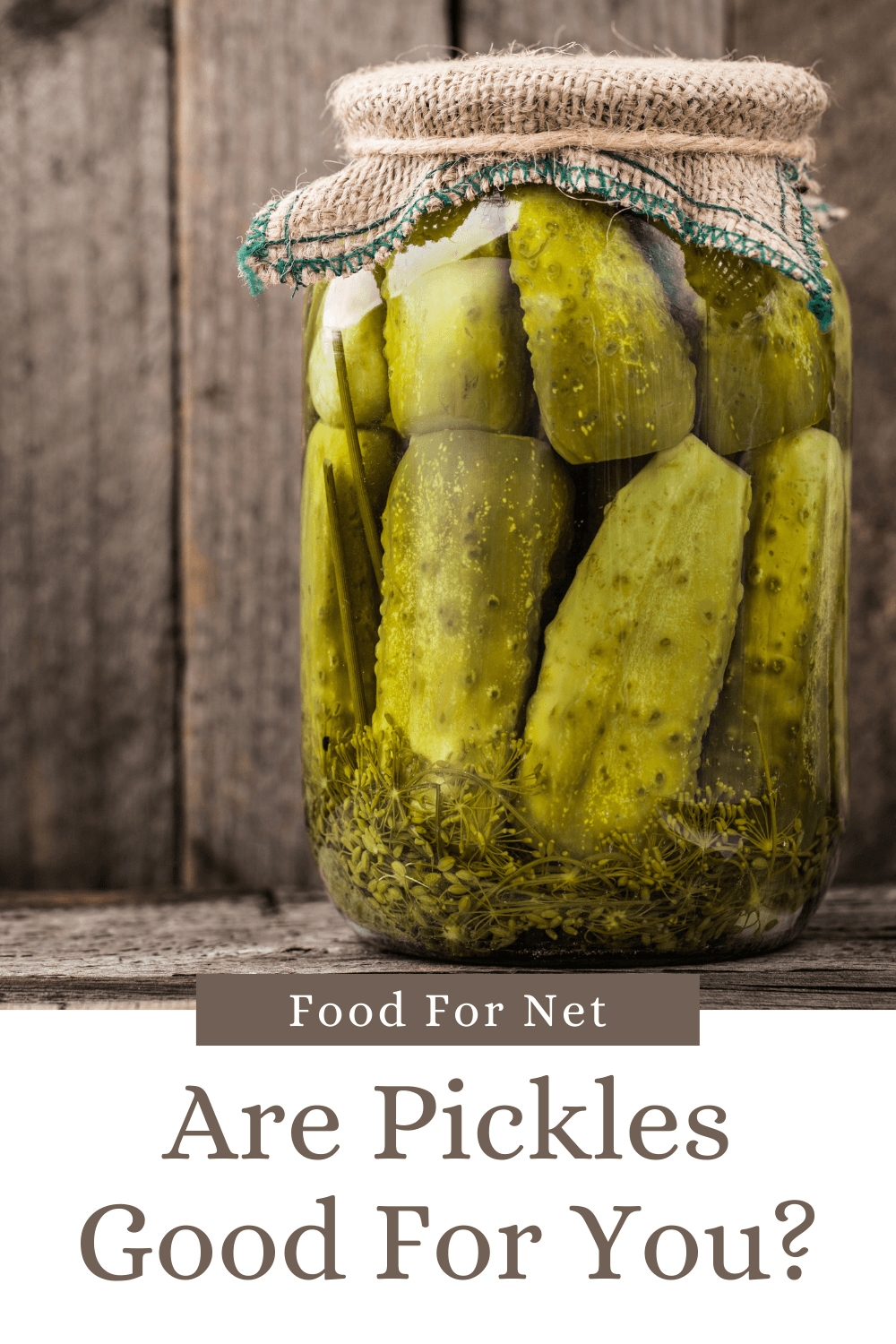
Who doesn’t love pickles? They’re delicious and incredibly popular either as snacks on their own, garnishes for cocktails (like the classic bloody Mary), chopped up in salads, or sliced and used in many other situations. Honestly, your options for pickles are endless – and that’s without talking about pickle juice, which has plenty of uses of its own. What about health though? Are pickles good for you?
It’s easy to see how they might be. They’re a type of fermented food, one that is often low in calories and can be surprisingly filling. Yet, pickles tend to be high in salt, a feature that puts a slight dampener on things.
Then there are all the differences between products to think about, as pickles may contain additives and often include extra sugar. So then, let’s take a look at how all these different areas balance out.
Are Pickles Good For You?
- What Are Pickles?
- Pickles Nutrition
- Benefits Of Pickles
- How Pickles Could Be A Problem
- Are Pickles Keto Friendly?
- Are Pickles Low FODMAP?
- Types Of Pickles
- Which Pickles Are Healthiest?
- Final Thoughts
What Are Pickles?
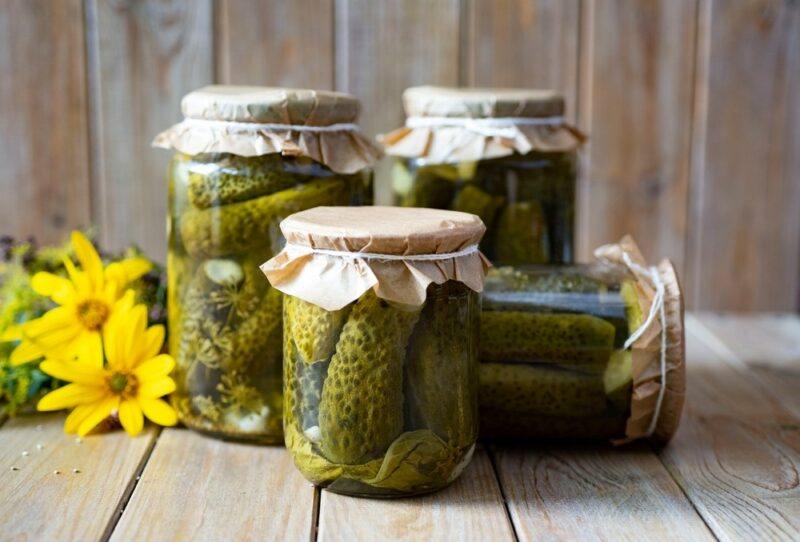
Before we talk about health, let’s clear up a few things about pickles. When we talk about pickles, most of us are thinking of pickled cucumbers, especially if we’re in the US.
However, the term pickles actually refers to any vegetable that has been pickled using salt, vinegar, and water. Pickled vegetables share many of the same properties, regardless of the type that you choose. For example, they can all be excellent as probiotics, are popular as side dishes, and can be eaten on their own.
There are differences too. After all, each type of pickled vegetable gets its nutritional properties from the original ingredients used. Beets, cucumbers, and cabbage all have some nutritional differences, so it’s not surprising that pickled beets, pickled cucumbers, and sauerkraut do as well.
For this discussion, we’re sticking the American version of pickles – pickled cucumbers. As you’ll see, the popular treat does have some interesting benefits.
Gherkins Versus Pickles
There’s also some confusion about whether gherkins are pickled cucumbers. Different bloggers even come to their own conclusions on the matter, with some saying that gherkins and pickled cucumbers are different names for the same thing, while others claim there are distinct differences between the two.
First of all… gherkins and pickled cucumbers don’t rely on the same vegetable. Gherkins come from a different species. They’re sometimes called small cucumbers but aren’t technically cucumbers at all.
It’s not surprising, then, that there are flavor and texture differences between gherkins and pickles. There are nutritional differences too, although many of the benefits that we talk about in this post will apply to pickles.
That said, the name choice tends to vary depending on where you are. People in Britain, Australia, and New Zealand, for example, tend to use the terms pickled cucumber and gherkin interchangeably.
Pickles Nutrition
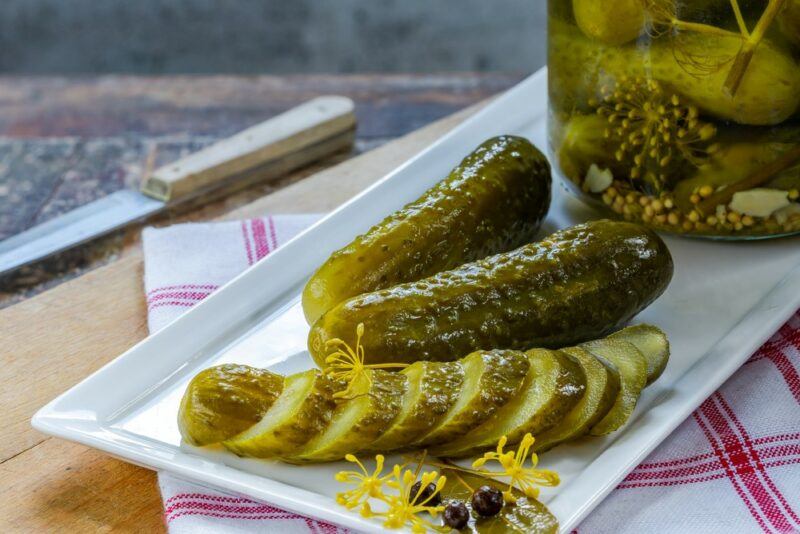
Pickles aren’t an amazing source of nutrients. A single large pickle contains less than 5% of your daily needs for most vitamins and minerals, except for calcium (6% of your daily needs) and vitamin K (66% of your daily needs).
Don’t get too excited about the vitamin K though, as vitamin K isn’t unusual. You’ll find it in plenty of other green vegetables too, often in higher amounts.
You do also get roughly 1.5 grams of fiber per pickle as well.
The low nutrient levels aren’t a huge issue. After all, pickled cucumbers are mostly water, so you wouldn’t expect all that many nutrients. There are also plenty of nutrient dense ingredients that you can use to help balance your diet, like kale and broccoli.
There’s also the sodium in pickles to think about, but we’ll come back to that a little later on.
Benefits Of Pickles
May Help With Weight Loss
Pickles and cucumbers are both packed full of water, which is one reason that they’re so refreshing. They’re also very low in calories and give you a decent amount of fiber.
For example, a single large dill pickle only contains around 17 calories. You get 1.5 grams of fiber in that serving size. Not too shabby, right?
The combination of low calories, plus fiber and water, makes pickles excellent for weight loss. You end up with a surprisingly satisfying snack that doesn’t impact your caloric budget much at all.
Don’t worry if pickles are too intense on their own, they can easily be included as an ingredient in a salad or a sandwich. Both approaches allow you to enjoy plenty of healthy and nutrition packed ingredients at the same time.
Can Be Source Of Probiotics
Probiotics are one of the most important reasons for turning to pickled foods.
You’ve heard the term, right? It refers to a collection of microbes that may actually improve our health, rather than harming us. This happens because the microbes complement the ones that inhabit our guts, helping to keep our body functioning well.
Having a good balance of microbes in your gut is thought to have direct and indirect impacts on many aspects of health, like improving digestion, decreasing heart disease risk, lowering inflammation, and even easing depression symptoms.
Getting probiotics in your diet is one way to see these benefits.
Probiotics are still being researched, so there’s much we don’t know. But, early evidence and theories suggest that there may be others too, including the chance to reduce anxiety symptoms, to treat cavities, to improve your skin, to treat yeast infections, and to help with some respiratory infections.
They Increase Your Antioxidant Intake
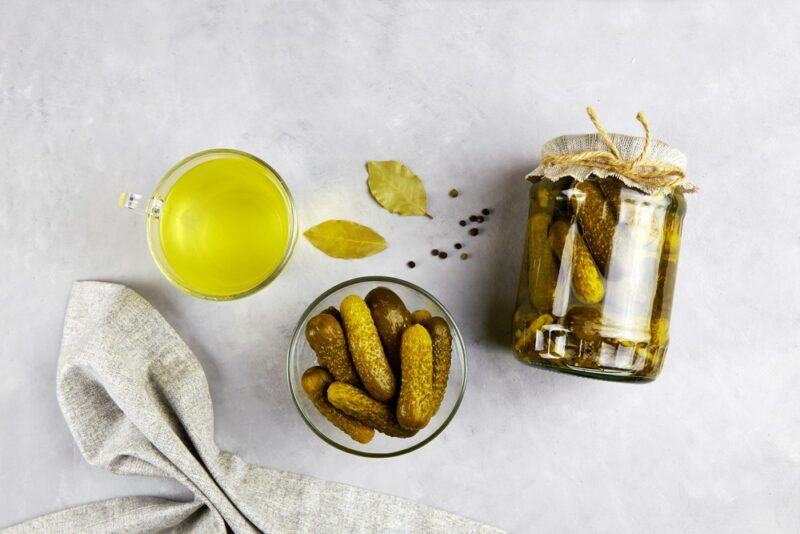
It’s easy to forget that pickles provide antioxidants too. These powerful compounds survive the pickling process and are relevant to your health in plenty of ways.
Their most well-known feature is obvious from the name – antioxidants decrease oxidation. This is an important effect, as modern diets and lifestyles appear to contribute to high levels of oxidative stress, which then puts our health at risk.
Antioxidants help to decrease oxidative stress. By doing so, they may also decrease the risk of various chronic conditions, including heart disease and diabetes.
Antioxidant compounds can have other impacts too, such as decreasing inflammation. Some may be even more powerful for health than we currently know.
Can Improve Your Digestion
Pickles are a good choice for your digestion too. The fiber is one reason for this effect, as it helps to bulk out your stools and reduces the risk of constipation.
Then there are the probiotics. As we mentioned earlier, these can help with the balance of microbes in your gut. By doing so, probiotics may improve your ability to digest food well and decrease any gastrointestinal side effects.
How Pickles Could Be A Problem
They’re High In Sodium
The sodium in pickles is easily their biggest issue, as a single large dill pickle can give you almost 50% of your daily sodium intake. That’s a lot of sodium from a single pickle.
While sodium is important as an electrolyte, many of us are already consuming far too much of it. Sodium excesses increase blood pressure levels, which then increase the risk of a variety of conditions, including osteoporosis, stroke, kidney disease, and fluid retention.
You can find some low sodium pickles, but these tend to be pickled in vinegar rather than a brine solution and won’t contain all the probiotic benefits that you get with brine-based pickles.
The Seeds Contain Lectins
Pickles also contain lectins, which is a type of protein that has been linked to some health problems, including an increased risk of dementia. Lectins also decrease the absorption of some nutrients.
Whether lectins are actually a problem or not is a matter of considerable debate. Expert advice currently suggests that the benefits of lectin containing foods far outweigh the risks. Still, some people focus on low lectin foods instead.
Thankfully, cucumbers are relatively low in lectins and some lectins get removed during the fermentation process. You can also decrease the lectin content further by making pickles yourself and removing the seeds before fermentation (as the seeds contain the highest concentration of lectins).
As always, you’ll need to decide for yourself whether the lectins in pickles are a problem or not.
Are Pickles Keto Friendly?
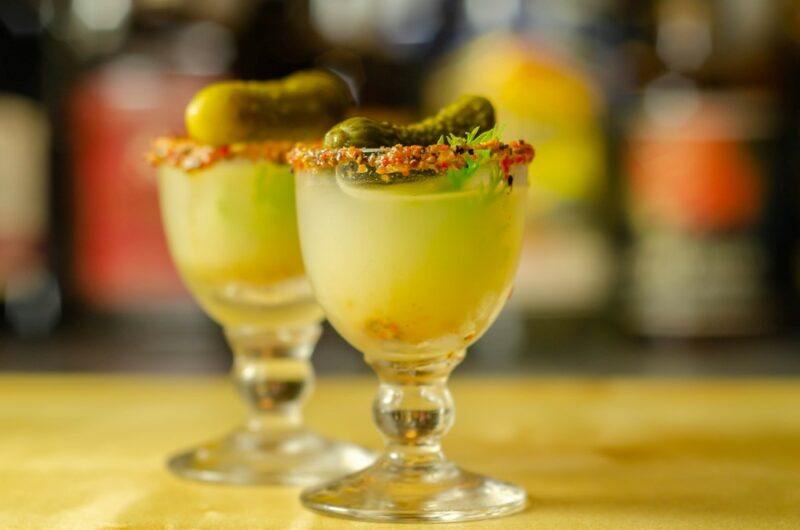
Cucumbers are naturally low in sugar, so it’s not surprising that pickles can be easily included on a keto diet. You’re often getting barely any carbs per serving. Plus, you can pair pickles with keto-friendly sides and dips to give yourself a filling and delicious snack.
You’ll need to pay close attention to the product label, however, as some products are sweetened, which can increase their carb content dramatically.
Also, some keto dieters avoid pickles because of their lectin content.
Are Pickles Low FODMAP?
Low FODMAP foods are important for anyone with a sensitive digestive system, particularly people living with irritable bowel syndrome. However, FODMAP levels aren’t obvious just by looking at the food. Instead, testing is used to give us a sense of which foods are low FODMAP and which ones aren’t.
This is where things get complicated, as only some foods have been tested.
FODMAP levels can also vary depending on a variety of factors. For pickles, the variety of pickle and the specific pickling approach could easily influence FODMAP levels. We can’t know for certain though, as testing has been limited.
Current evidence from Monash University (the best source of FODMAP data) shows that most pickled foods are high FODMAP, but that pickled cucumbers and gherkins may be low FODMAP instead.
However, this data just refers to the pickles themselves. You’ll need to watch out for FODMAPs in any extra ingredients too. For example, garlic is a high FODMAP ingredient and is often included in pickles.
Even with the data from Monash University, it’s important to be cautious with pickles. Reports on whether they’re low FODMAP or not are all over the place, so they might be more of a problem than they seem to be.
In the end, you’ll need to trust your body. Try starting with a small serving of pickles and seeing whether you get any side effects from them. You can always increase your intake from there.
Types Of Pickles
Pickled cucumbers fall into a few different styles, starting with the liquid that is used.
Some versions rely on a salt-based brine, while others use vinegar instead. The former approach tends to be higher in sodium, but gives you plenty of probiotics. While using vinegar instead can help to decrease the sodium content of pickles, you lose out on the probiotic benefits too.
There are also variations in other ingredients:
- Bread and butter pickles tend to use a sweeter brine. Coriander and other spices are used as well.
- Sweet pickles also have a sweet brine. They tend to be sweeter than bread and butter pickles, but aren’t overwhelmingly sweet. They often use vinegar rather than salt for the brine, so you won’t see any probiotic benefits.
- Kosher dill pickles aren’t kosher in the normal sense of the word. Instead, the term refers to the use of garlic and dill in the brine, which creates a distinct flavor.
- Cornichons are basically small cucumbers, much like gherkins, but even smaller.
- Sour pickles tend to be made using the brine approach, so they contain plenty of probiotics and aren’t sweet at all.
Which Pickles Are Healthiest?
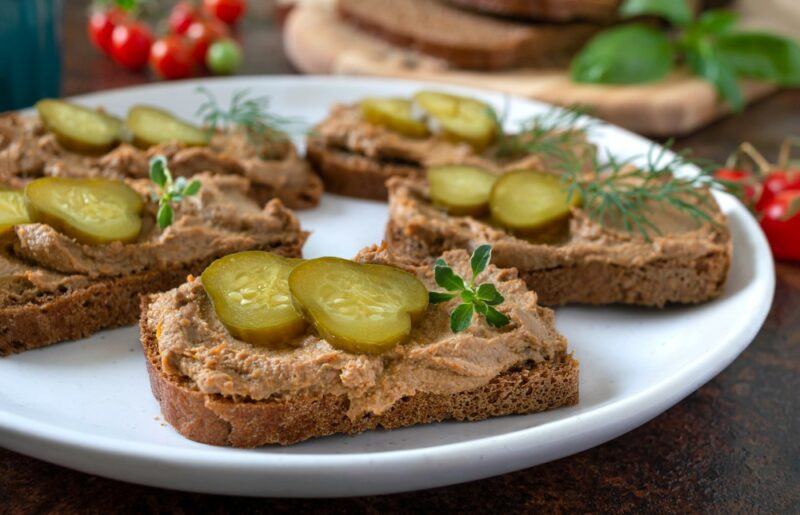
As you’ve seen, pickles aren’t all the same. These differences influence the health benefits as well.
Let’s start with the liquid used.
Vinegar-based pickles may seem healthiest at first glance, as they’re often lower in sodium than ones made with brine. However, the use of vinegar means you’re not getting fermentation, so you don’t get any probiotic benefits from the pickle.
The tradeoff often isn’t worth it, as probiotics are one of the biggest benefits that pickles offer. Plus, vinegar-based pickles tend to contain more additives, including artificial colors and preservatives like sodium benzoate and potassium chloride.
While brine-based pickles are often higher in sodium, they also have the probiotic benefits, which should make them healthier.
It’s also important to check out the product label for any jar of pickles. Look for products that keep the sodium relatively low and don’t rely on additives. After all, such additives don’t provide any health benefits and might even cause harm.
Also, watch out for pickles that have been pasteurized. Pasteurization helps to prevent food spoilage by killing bacteria, but the process kills healthy bacteria along with the unhealthy kind. That’s the last thing you want when you’re trying for probiotic benefits.
So then, the healthiest pickles are those pickled in brine that haven’t been pasteurized and use few additives.
Some companies do produce such pickles or you can make your own at home. If you’re taking the homemade route, however, pay close attention to food safety, as it’s easy to contaminate your pickles with harmful bacteria. If this happens, your treat might end up making you sick, rather than improving your health.
Final Thoughts
Pickles are a delicious low calorie snack, one that could easily help with weight loss. If you choose the right type, you’re also getting plenty of probiotics, which could then lead to many benefits.
Even so, pickles aren’t as amazing as they first seem. The problem is the sodium content. A decent amount of sodium is needed to create fermented pickles and most of us are already consuming more sodium than we need to. Pickles can still be enjoyed, but the trick is to see them as a treat, rather than a type of health food. This way you can keep your portion sizes in check and still enjoy pickles every so often.
Frequently Asked Questions
Do Pickles Go Bad?
Pickling is an important way to preserve food, but this doesn’t mean that pickles will last forever. They still go bad over time. This is often obvious by a strong smell, discoloration in the pickles or their brine, or even mold.
Making sure the pickles are always submerged in brine is an important part of keeping them fresh. Any pickles that are partly above the brine will go bad much more quickly.
Are Pickles Acidic?
Pickles are generally acidic, as they’re normally pickled in vinegar. This acidity can be a problem if you deal with acid reflux, as the pickles (and pickle juice) can make your symptoms worse.
Are Pickles Fermented?
Many of the pickles you buy or make rely on vinegar and aren’t fermented at all. However, there are some fermented pickles, which should provide probiotic benefits.
If you’re buying pickles, you should also check whether they’ve been pasteurized. Pasteurization kills healthy microbes along with any dangerous microbes, so pasteurized pickles may not contain probiotics at all.
Do Pickles Need To Be Refrigerated?
If a jar of pickles is sealed and unopened, then it can be kept at room temperature without a problem. However, once the jar has been opened, it’s best to keep the pickles in the fridge instead. They will spoil too quickly otherwise.
That said, traditional fermented pickles (the ones made with plenty of salt) can often be kept safely out of the fridge – at least for a while. If you’re taking this approach, you’ll need to be careful with hygiene practices any time you open the pickle container. Otherwise you could easily make yourself sick.
Do Pickles Help With Cramps?
Some research suggests that pickle juice will help with exercise related cramps, potentially reducing the intensity and duration of cramps. The juice might also help with other types of cramps, perhaps even period cramps.
However, that effect has mostly been found with pickle juice – not with pickles themselves. Pickles have some of the same compounds, so they might reduce cramps too (or they might not).

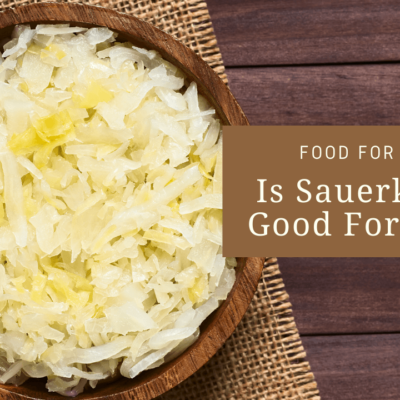
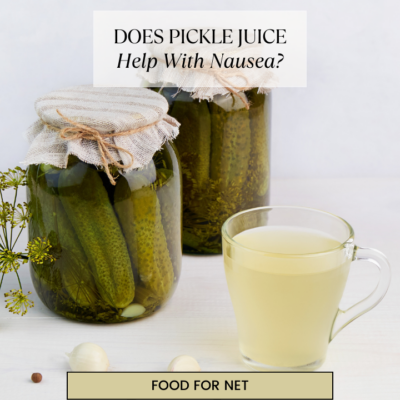
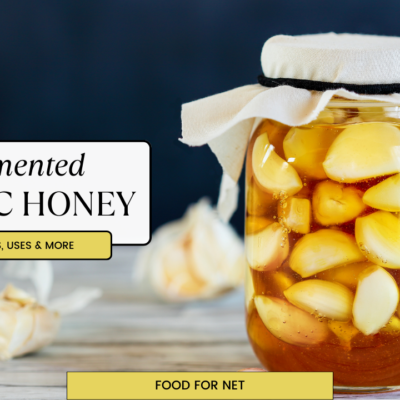
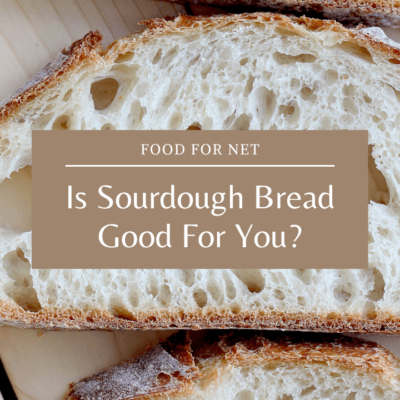
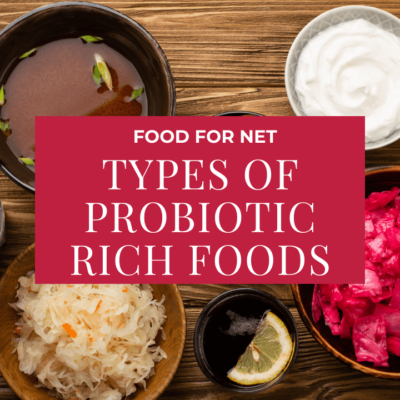
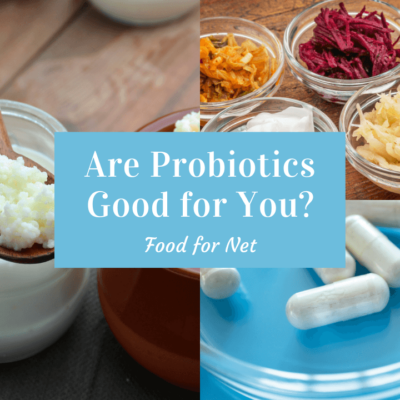
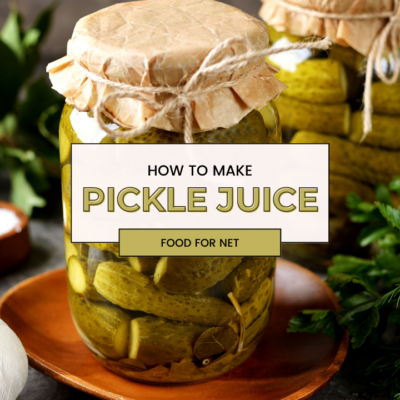
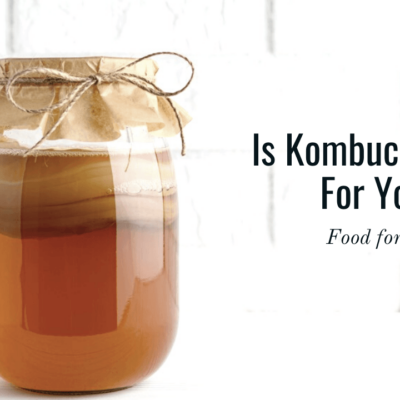

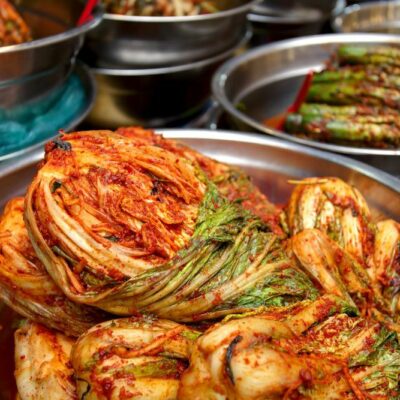
 15 Best Foods For Weight Lifting, Plus Three Essential Weight Lifting Tips
15 Best Foods For Weight Lifting, Plus Three Essential Weight Lifting Tips
Leave a Reply